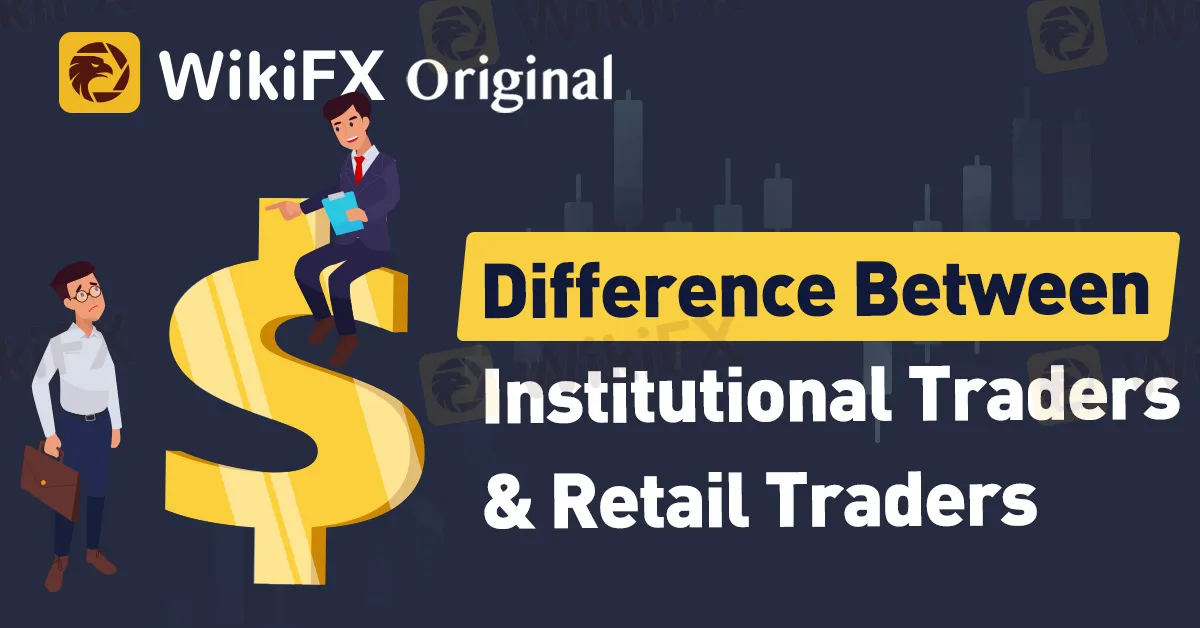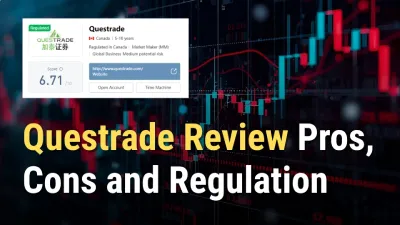简体中文
繁體中文
English
Pусский
日本語
ภาษาไทย
Tiếng Việt
Bahasa Indonesia
Español
हिन्दी
Filippiiniläinen
Français
Deutsch
Português
Türkçe
한국어
العربية
Difference Between Institutional Traders & Retail Traders
Abstract:The article explores the differences between institutional traders and retail traders, highlighting their unique advantages, access to securities, and potential paths of transition between the two.

The world of securities trading encompasses a spectrum of approaches, from the simplicity of retail trading to the complexities of institutional trading. Retail traders, often individuals, engage in personal securities transactions, while institutional traders manage accounts for groups or institutions such as pension funds, mutual fund families, insurance companies, and ETFs.
Although advancements in technology and access to information have narrowed the advantages once held by institutional traders, certain distinctions remain. Institutional traders still enjoy access to a wider range of securities, the ability to negotiate fees, and assurances of best price and execution.

Institutional traders can delve into complex transactions like forwards and swaps that are typically beyond the reach of retail traders. Moreover, institutions are often presented with investment opportunities in IPOs and can negotiate basis point fees while avoiding marketing or distribution expenses.
Given their substantial trading volume, institutional traders possess the power to significantly impact the share price of a security. To mitigate this influence, they may split trades among various brokers or execute them over time.
The size of an institutional fund influences the market capitalization of the securities it owns, with larger funds generally favoring higher-cap stocks. Smaller-cap stocks pose challenges for institutional traders as their investment might result in majority ownership or reduced liquidity due to limited counterparty participation.

Retail traders primarily engage in stocks, bonds, options, and futures, with limited access to IPOs. They typically trade in round lots, although the flexibility to trade any number of shares exists. Retail traders may encounter higher trading costs if they utilize brokers with flat fees per trade along with marketing and distribution expenses. Given the relatively smaller number of shares they trade, retail traders have minimal impact on security prices.
Unlike institutional traders, retail traders are more inclined to invest in small-cap stocks due to their affordability, facilitating diversified portfolios comprising multiple securities.
Interestingly, retail traders often transition into institutional traders. Starting with personal trading accounts, successful retail traders may expand their scope to include trades for friends and family. Continued success and the accumulation of capital from other investors can lead to the establishment of a small investment fund, paving the way for the transformation into institutional traders.
While institutional traders and retail traders have distinct characteristics, their paths can intertwine as retail traders progress towards managing institutional-level portfolios, exemplifying the evolutionary nature of the trading landscape.

Disclaimer:
The views in this article only represent the author's personal views, and do not constitute investment advice on this platform. This platform does not guarantee the accuracy, completeness and timeliness of the information in the article, and will not be liable for any loss caused by the use of or reliance on the information in the article.
Read more

Seaprimecapitals Withdrawal Problems: A Complete Guide to Risks and User Experiences
Worries about Seaprimecapitals withdrawal problems and possible Seaprimecapitals withdrawal delay are important for any trader. Being able to get your money quickly and reliably is the foundation of trust between a trader and their broker. When questions come up about this basic process, it's important to look into what's causing them. This guide will tackle these concerns head-on, giving you a clear, fact-based look at Seaprimecapitals' withdrawal processes, user experiences, and trading conditions. Most importantly, we'll connect these real-world issues to the single most important factor behind them: whether the broker is properly regulated. Understanding this connection is key to figuring out the real risk to your capital and making a smart decision.

iFX Brokers Review: Do Traders Face Withdrawal Issues, Deposit Credit Failures & Free Coupon Mess?
Have you had to pay several fees at iFX Brokers? Had your trading profit been transferred to a scamming website, causing you losses? Failed to receive withdrawals from your iFX Brokers trading account? Has your deposit failed to reflect in your trading account? Got deceived in the name of a free coupon? Did the broker officials not help you in resolving your queries? Your problems resonate with many of your fellow traders at iFX Brokers. In this iFX Brokers review article, we have explained these problems and attached traders’ screenshots. Read on!

NinjaTrader Exposed: Why Traders are Calling Out NinjaTrader’s Lifetime Plan & Chart Data
Did NinjaTrader onboard you in the name of the Lifetime Plan, but its ordinary customer service left you in a poor trading state? Do you witness price chart-related discrepancies on the NinjaTrader app? Did you have to go through numerous identity and address proof checks for account approval? These problems occupy much of the NinjaTrader review online. In this article, we have discussed these through complaint screenshots. Take a look!

Questrade Review Pros, Cons and Regulation
Is Questrade legit? Yes—CIRO regulated broker offering stocks, ETFs, forex, CFDs, bonds, and more with low fees and modern platforms.
WikiFX Broker
Latest News
Simulated Trading Competition Experience Sharing
WinproFx Regulation: A Complete Guide to Its Licensing and Safety for Traders
Interactive Brokers Expands Access to Taipei Exchange
Axi Review: A Data-Driven Analysis for Experienced Traders
INZO Regulation and Risk Assessment: A Data-Driven Analysis for Traders
Questrade Review Pros, Cons and Regulation
AccentForex Review: Is It Safe to Invest or Scam?
Cleveland Fed's Hammack supports keeping rates around current 'barely restrictive' level
Delayed September report shows U.S. added 119,000 jobs, more than expected; unemployment rate at 4.4%
The CMIA Capital Partners Scam That Cost a Remisier Almost Half a Million
Currency Calculator



